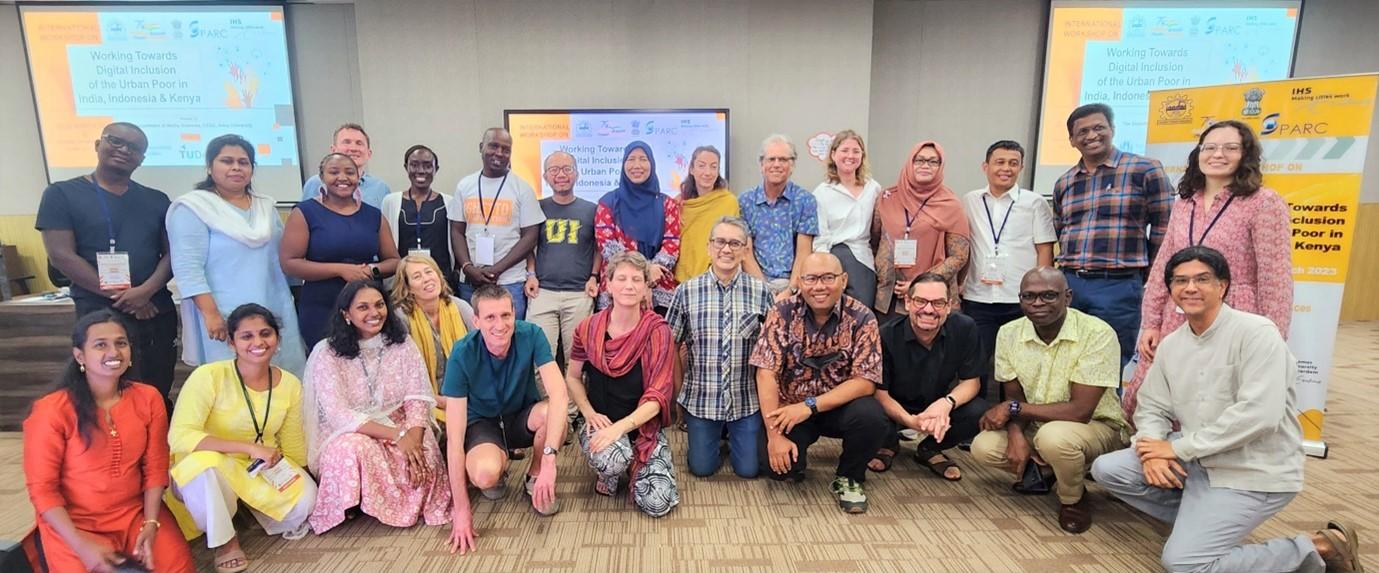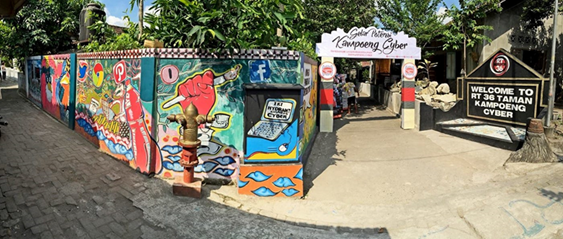Global Insights: Bridging the Digital Divide – Digital Inclusion for the Urban Poor in India, Indonesia, and Kenya
An ongoing initiative is transforming digital access for some of the most marginalized communities in the world. Across the bustling streets of Nairobi’s Mathare settlement, the resettlement blocks of Chennai, and the dense urban networks of Yogyakarta, a pioneering project has been working to ensure that access to information is no longer a privilege, but a right.
The Challenge: Digital Inequality and Social Exclusion
In an increasingly digital world, millions of urban poor remain disconnected from vital services, employment opportunities, and essential information. The Right to Information: Working Towards Digital Inclusion of the Urban Poor project, led by Dr. Maartje van Eerd (Erasmus University, Institute for Housing and Urban Development Studies) and supported by LDE Global, aims to change that.
The urgency is clear:
- 20 million people are displaced annually due to climate disasters, with two-thirds living in Asia.
- Resettled communities—especially women—face economic and social exclusion, compounded by poor access to digital resources.
- Despite mobile phone penetration, high costs, lack of literacy, and infrastructure gaps keep the urban poor offline.
This project focuses on co-creating digital hubs—community-driven spaces providing internet access, digital skills training, and essential services, empowering residents to improve their livelihoods.
The Project: Empowering Communities Through Digital Hubs
From March 20–24, 2023, an international workshop at Anna University in Chennai, India brought together 22 researchers, government officials, and community leaders from India, Indonesia (Yogyakarta), Kenya, and the Netherlands. This workshop, supported by LDE Global, was a major step in developing scalable solutions for digital inclusion.

Case Study 1: Yogyakarta – Kampung Cyber
In Indonesia, the Kampung Cyber project started in 2008 as a grassroots effort to provide internet access to low-income communities near the Tamansari Water Temple. The project’s success lies in its strong social capital, where community-led digital training and infrastructure development have enabled local entrepreneurship and international recognition.

Case Study 2: Nairobi – Digital Hubs for Informal Settlements
Mathare, one of Nairobi’s largest informal settlements, is home to over 200,000 residents facing challenges such as job insecurity, water shortages, and healthcare gaps. The proposed Mathare Digital Hub, co-developed with local community members, will:
- Provide free public Wi-Fi and digital training.
- Support online work and entrepreneurship.
- Improve access to health and financial services.
Case Study 3: Chennai – Digital Rights for Resettled Women
Following the 2015 Chennai floods, thousands were relocated to high-rise apartments 30 km from the city center, isolating them from economic opportunities. The Chennai Digital Inclusion Initiative seeks to:
- Raise awareness of legal rights among resettled women.
- Support online entrepreneurship and networking.
- Facilitate access to healthcare and government services.
During the workshop, local women leaders shared powerful stories of economic hardship and social exclusion, reinforcing the need for digital solutions that prioritize community empowerment.
Lessons Learned: Overcoming Barriers to Digital Inclusion
While the project has made significant strides, challenges remain:
- Power dynamics: Community researchers often defer to academics, requiring a shift towards more equitable participation.
- Digital literacy gaps: Many residents lack basic skills to utilize online tools effectively.
- Sustainability concerns: How can digital hubs remain operational without continuous donor support?
To address these issues, the project emphasizes:
✅ Co-creation with local communities—ensuring interventions are bottom-up rather than imposed.
✅ Sustainable funding models—through public-private partnerships and community-led initiatives.
✅ Policy integration—working with governments to scale and institutionalize digital inclusion.
The Future: Scaling Digital Hubs for Global Impact
By fostering South-South collaboration and participatory research, this initiative serves as a blueprint for sustainable digital inclusion worldwide. The LDE Global-backed approach demonstrates that community-driven digital access can:
- Create economic opportunities through digital skills training.
- Strengthen community resilience by improving access to critical services.
- Empower marginalized groups, particularly women, to participate in the digital economy.
Through continued research, knowledge exchange, and local engagement, this project is shaping a more inclusive digital future—one where no one is left behind.
For more insights, visit: Project Website
